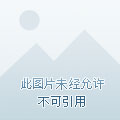
Ouyang Inquiry: Bu Shang Ti
Paper 25.2 cm × 16.5 cm
Collection of the Palace Museum in Beijing
【Explanation】: ト商讀讀讀,見孔子。 Confucius asked, "What is YuShu?" Shang Ri: "The discussion of the book is as clear as the sun and the moon, and the deviation is like the wrong line of samson." Whoever receives from the Master of the Merchant has the will to heart, and dares to forget it.
Ouyang Qing (Chinese: 欧阳問), a native of Linxiang, Tanzhou (present-day Changsha, Hunan), was a famous calligrapher of the Tang Dynasty, whose calligraphy was known for his "dangers", and together with Yan Zhenqing, Liu Gongquan, and Zhao Mengfu, he was known as the Four Great Masters of the Book of Letters. There are only four surviving inkblots of his, namely the "Chu Ni Meng Dian Ti" and "Thousand Character Text of the Book of Letters" in the Liaoning Provincial Museum, and the "Bu Shang Reading Post" and "Zhang Han Ti" in the Palace Museum in Beijing.
"Bu Shang Ti" is also known as "Bu Shang Reading Post", which is said to be Ouyang Inquiry Book, And the Tang Dynasty Double Hook Outline Filler. Although it is a hook-filled version, the meaning of the "European body" contained in it is very obvious, and the dot painting is strengthened by square folds at the beginning and end, the circle is smooth and square, and the knot body is comfortable. The strokes are broader and fatter than those of "Chu Ni Meng Dian Ti", and in general, it is a more gentle work of Ouyang Inquiry style.
"Bu Shang Ti" is thick with ink, the line is flooded, and the next pen is as sharp as a nail. The thin and elegant style of his calligraphy is transformed into sharp pen marks here, and it seems that there are still Fang Jin brushwork in Northern School calligraphy, such as Wu Sheng's "Great View Record" of the Qing Dynasty: "The pen is sharp and strong, and the ink is fresh." "On the whole, the first two lines are more in letters, and later, they are slightly relaxed, the meaning of the line is increased, and the Jin people and their own faces also begin to flow out. After carefully reviewing this post, it is suspected that the brush used is short and hard, that is, the so-called "jujube heart pen".
The word "away" in the post, especially the second "away" word, is very similar to the word "away" in Wang Xizhi's "Funeral Post", and some words also have a slight meaning of "frequent mourning post". This post did not write the date and month, and some researchers believe that it was written by Ouyang Qing in his later years. Judging from the Northern Dynasty brushwork and the simulated right army knot, it is not much like the work of Ouyang Qian's personal style in his later years, but the slender knot body is consistent with the "Thousand Character Text". The brilliance of this post is unquestionable, with varied and clear strokes.
Ouyang Qian's books have always been cherished by the world. The Bu Shang Ti was once treasured by Emperor Huizong of the Song Dynasty, and in the Qing Dynasty, it was included in the Inner Palace and compiled into the "Fa Shu Daguan" book. Emperor Huizong of Song once commented on this post: "In his later years, his pen strength was stronger and stronger, there was a wind of law enforcement and court contention, the rise of the lone peak, and it was cut on all sides, not a false reputation." ”
Hd picture appreciation
▼
This text is found in the "Shang Shu Da Biography" and included in the "Art and Literature Cluster" Volume 5 "Miscellaneous Literature Department Reading", compared with the historical books, there are some discrepancies in the posts.
The gist of the content is that Confucius's disciple Bu Shang finished reading the book and went to see Confucius. Confucius asked him, what do you think of books? The merchant replied: The book discusses things, bright as if it were the sun and the moon, and orderly as if it were the stars and stars, and the knowledge I learned from you has been memorized and dare not be forgotten.
Sharing to the circle of friends is also an appreciation!
If you like it, click on it